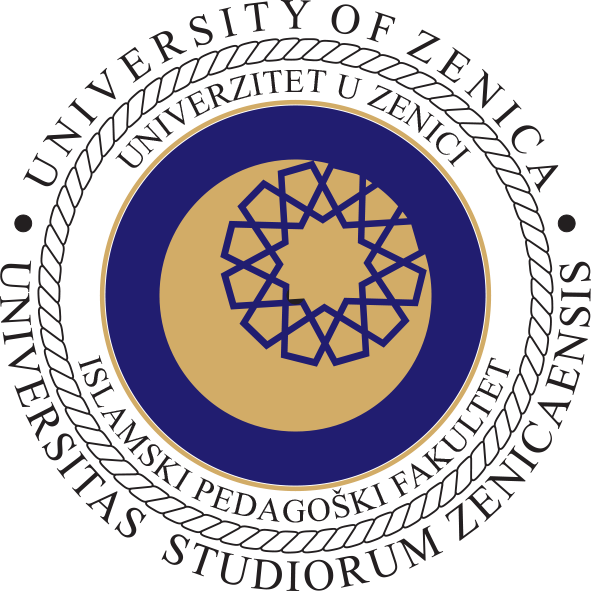DIALOGUE AGAINST EXCLUSION – CHRISTIAN-MUSLIM RELATIONS IN DENMARK
The Danish experience pertaining to the interreligious dialogue and Christian-Muslim relations is very peculiar. In recent decades it has been marked by extremely negative episodes and political exclusivity, but also by very significant and strong dialogue initiatives. The aim of this article is to illustrate the current situation and to offer an a...
By Safet Bektović
A review of the book “Juvenile delinquency” by Suad Orlić, Izet Pehlić and Nermin Tufekčić
Book review...
By Emina Babić
UNDERSTANDING THE BASIC TERMINOLOGY OF TAJWEED
The practice of accurate pronunciation of the Qur'anic harf, lengths, idgams, etc., is certainly a matter of skill in tilavet, and there is no skill without systematic work and practice. The practical, sound-related aspect of reciting the Qur'an is only one segment of Tajweed, i.e. its artistic dimension. However, when we say 'ilm et-tajweed', we r...
By DŽevad Šošić
CORPUS-BASED STUDY OF THE MODAL VERBS IN THE SPOKEN AND ACADEMIC GENRES OF THE CORPUS OF CONTEMPORARY AMERICAN ENGLISH
This corpus-based study focuses on the nine English central modal verbs (can, could, will, would, may, might, shall, should, and must) across the two chosen genres of the COCA corpus – Spoken and Academic genres, which show the greatest number of differences in terms of genre characteristics, such as formality or intended audience. Because research...
By Edina Rizvić-Eminović, Đelaludina Šukalić
ARABIC IN INTERLANGUAGE CONTACTS
Contacts between speakers of different languages are a common occurrence, although depending on the efficiency of means of transport and communication they have been of varying intensity throughout history. The nature of the consequences of such contacts can be positive and negative for the languages, while the superior or inferior status of langua...
By Amrudin Hajrić
NOVEL ZAYNAB: BETWEEN ARAB TRADITIONALISM AND EUROPEAN ROMANTICISM
Novel Zaynab by Egyptian author Muḥammad Ḥusayn Haykal has become a subject of interest for Arab and Western European scholars in the field of literature. This novel is interesting and important in many aspects, one of them being a skillful blend of traditional Arab literary heritage and European Romanticism elements Haykal presented in this novel....
By Azra Kapetanović
GIFTEDNESS AND ACADEMIC ACHIEVEMENT AS DETERMINANTS OF COMPETENCE SELF-PERCEPTION IN ELEMENTARY SCHOOL STUDENTS
Conducting this research, we wanted to explore the competence self-perception in gifted elementary school students and to compare different aspects of gifted and non-gifted children’s self-perception. In addition to this, we investigated gender differences as well as the correlation between self-perception and academic achievement. The research sa...
By Anela Hasanagić, Asmir Zukić, Nina Bulajić
RELIGIOSITY AND BEHAVIORAL DISORDERS IN YOUNG ADULTS
This paper is the adapted and extended version of the bachelor’s work of our student Eldar Ćerim supervised by professor Edina Vejo and assistant professor Elma Begagić. The paper presents the results of several research studies (Bazrafshan, Jahangir & Shokrpour, 2017; Cox, 2011; Pirner, 2017; Williams & Lindsey, 2005) showing the nature of...
By Eldar Ćerim, Edina Vejo, Elma Begagić
INTERRELIGIOUS DIALOGUE AND RELIGIOUS EDUCATION FROM A SWEDISH PERSPECTIVE
I want to make a contribution to understanding the relation between interreligious dialogue and Religious Education based on my own experience of teaching non-confessional Religious Education in Swedish schools, training teachers in Swedish universities for such Religious Education and sharing in Sweden dialogues, rejoicing and disappointment with ...
By Edgar Almen
THE THEORY OF NECESSITY IN SHARIA LAW
The theory of necessity (ḍarūra) questions the relations between norm and person, condition and regulation, permissible and forbidden, useful and harmful, variable and immutable, important and irrelevant. It is a comprehensive theory, applicable in all fields of Islamic law. In the theory of necessity, reason forms a whole with the Text, logic with...
By Senad Ćeman



